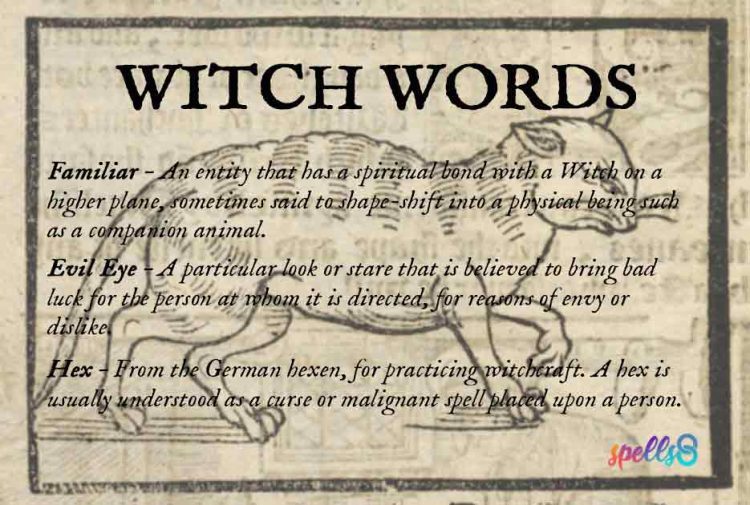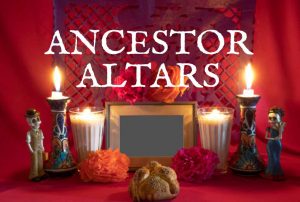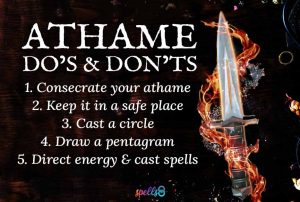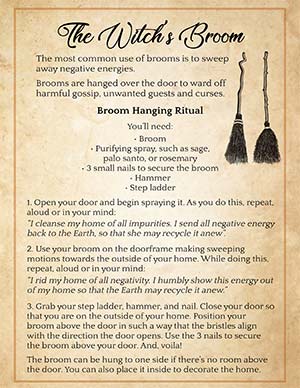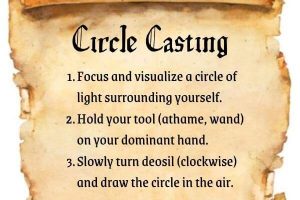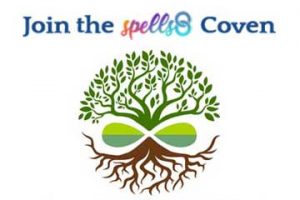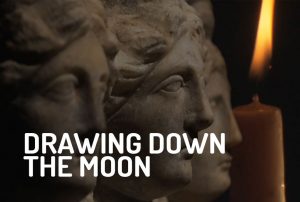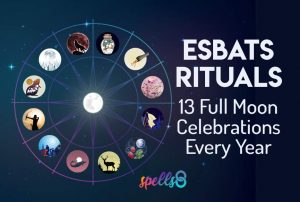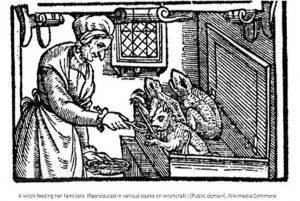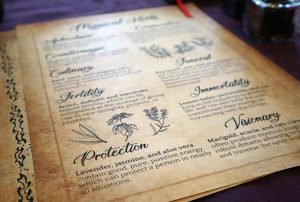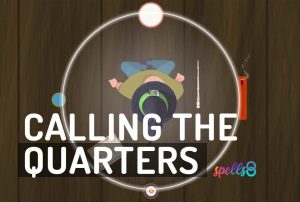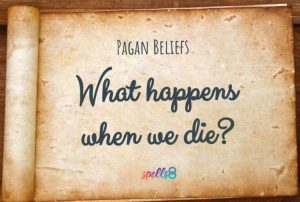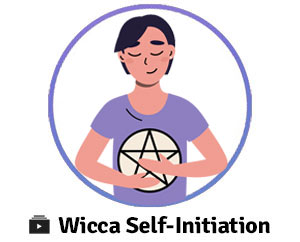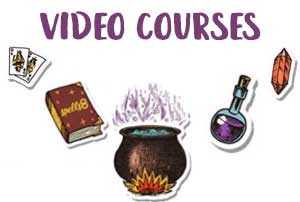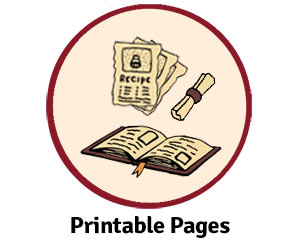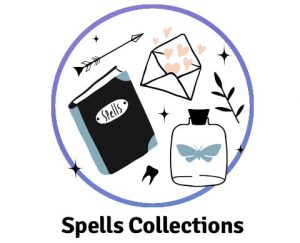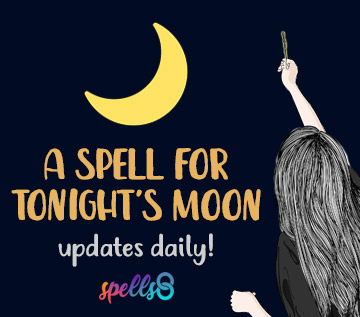To be a Witch is to be an eternal seeker, a student of nature and of the spirit world. Witches are constantly expanding their knowledge and their vocabulary, and new words associated with witches appear all the time. Do you know what all these witchy terms mean?
Here’s a list of witch-related words for you to gain a better understanding of the nuances of the witch vocabulary of our time, including Wiccan terminology and other pagan slang.
See also: Types of Witches: What kind of Witch Am I?
Witch Words List 🔮
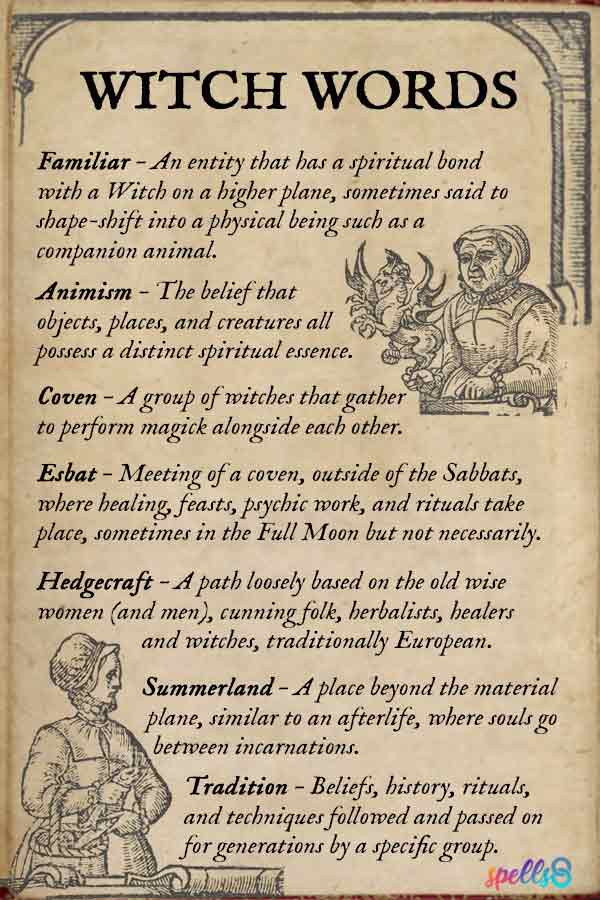
Adept – One who is skilled at magick by the very nature of their being. Their power is their birth rite, and are masters of whatever they set their minds to.
Alchemy – A protoscience that gained popularity in Europe through the Middle Ages and Renaissance. It is often described as a precursor chemistry, since alchemists were concerned with the transmutation of elements.
Altar – A sacred space of devotional or ritual work. This space is usually a table, shelf, or corner where offerings are presented to spirits and where one may perform rituals or spell work.
Ancestors’ Altar
What to put on your Ancestor Altar? In this blog post, we will explore what is an ancestor altar, why and how you should cultivate your own, and how to set up a sacred space for your ancestors. Find photos of ancestor altars, courtesy of the members of the Infinite Roots Coven.
Animism – The belief that objects, places, and creatures all possess a distinct spiritual essence or soul.
Arcane – From the Latin for “hidden” or “secret.” The term has often been applied to mystical secrets and the word arcanum is used in alchemy, and arcana in Tarot.
Aspect – An archetype of a deity or entity. A form, facet, or persona of a deity. In astrology, an aspect is an angle that planets make to each other in a chart.
Asperge – To cleanse and purify a space. This is usually done by spraying water around a room or using an herbal bundle to cleanse the space.
Astral Plane – The multi dimensional plane within the astral realm where one can travel using their astral body.
Athame – A double-edged knife with a black handle, usually used in ceremonial magick and traditional Wiccan practices. It is associated with masculine energy as well as the elements of fire and air.
Athame: Do’s and Don’ts
The athame is the Witch’s ceremonial blade. Its traditional physical form among many British Traditional Witchcraft lines is that of a cross-shaped, double-edged, black-handled dagger.
In this blog post, we explore 5 do’s and 3 don’ts of the athame in regular Wiccan/Neopagan practice:
Balefire – An open fire, usually used in a ritual or spell. Balefires are lit during pagan festivals such as the sabbats (witch’s holidays).
Badmouth – Originally used to describe someone who hexes or curses someone.
Banish – To use magick to rid something or repel something from a person or area.
Besom – A broom made of twigs tied around a stick. Used in cleansing rituals and to invite beneficial energies to a space.
Witch’s Broom Consecration
The most common use of brooms is to sweep away negative energies, thereby cleansing and purifying the space.
Learn how to consecrate your broom before you hang it over the door on inside a room for protection against negative energies, and find a printable page in PDF to add to your Witch’s Grimoire.
Blot – A communal event where animal sacrifice is used as an offering to a deity or god. Members of the ritual feast on the sacrifice in celebration. In today’s age, sacrificing a live animal is less common, there will be lots of good food and wine in its place.
Book of Shadows – Personal notebook kept by a practitioner of magick to record their work. This would include spellwork, rituals, personal wisdom, dreams, and observations. Start your own Book of Shadows with these printable dividers for a Book of Shadows binder. 📖
Boline – A small sacred knife used to cut items during a ritual. In contrast to the “Athame”, a “Boline” usually has a white handle.
Broom closet – One who practices Magick or follows a pagan lifestyle, and keeps that aspect of their life to their self. Being “In the broom closet” means you practice in secrecy from your friends and family.
Burning Times – A name given to the days of the Reformation, Inquisition, etc., when Witches were tried and executed by inquisitors, sometimes burned at the stake.
Cakes and ale – Ceremonial food that is served to the participants of a ritual or celebration. Foods may include whatever preferences the participants have.
Casting the circle – To project a circle or cone of energy where the practitioner will contain the energy generated by their ritual or magick.
Circle Casting for Wiccans and Non-Wiccans
When should I cast a circle? What’s a good chant to bless a circle? Do I need a tool or can I use my finger? Learn everything about sacred circles here:
Cense – To perfume something ritually with the odor of burning incense, such as a room, person, or object.
Charge – Intentionally passing a specific energy or intention to an object, person, or space. Items that have been charged are sacred or consecrated for a specific purpose.
Charm – From the Latin carmen meaning “song, incantation,” but came to be a generic term referring to any type of magick. As a noun, it commonly refers to a small object that protects its wearer from evil. As a verb, it commonly refers to refers to the act of using magick to exert control over a person.
Conjure – Originally had to do with the taking of oaths. Its magickal associations came when it was used to refer to binding demons to one’s will. In time, “conjurer” became a generic term for a magick-user.
Coven – A group of witches is called a Coven. A witch’s magickal family may be considered their coven if they have formed a group to perform magick alongside each other.
An Online Coven Awaits You
Don’t study alone! If you’re a regular practitioner, visit our Coven, get initiated or browse the online Book of Shadows.
If you’re a Baby Witch, read on! Find a Beginner Witch Guide with all the lessons you need.
Covenstead – A meeting space for witches to gather as a Coven.
The Craft – Refers to Witchcraft as a whole. One who follows the path of witchcraft follows the path of the craft.
Craft name – A name chosen by the practitioner for themselves within the magickal and spiritual community. This name can be a representation of their craft, abilities, interests or can sometimes be given to them by other members of their coven or elders.
Deosil – The clockwise motion of directing energy during a spell or ritual. This can be done with your hand, a wand, a knife, etc.
Dianic – A Wiccan type of groups within the Goddess tradition, focused on female experience and empowerment, sometimes linked to feminism and led by women.
Drawing down – Invocation of a Goddess into one who possesses the ability and strength to handle the energy of the deity.
Drawing Down the Moon Ritual
Renewal and blessing are the main ingredients of this beautiful evocation. Follow this guided meditation in solitary, with a chant to activate lunar powers.
Druid – From Old Celtic words for “oak” and “to know/see,” perhaps referring to divination using mistletoe, were a high-ranking political/religious class in some ancient Celtic cultures.
Eclectic – One who shapes their practices from many different cultures and belief systems. Someone who follows their own experimental journey rather than dedicating themselves to one predefined path.
Elder – One who has reached old age within the Pagan community. This person will typically guide and share their wisdom with others.
Elementals – Personified spirits of each Element. Traditionally: Gnomes, Undines, Sylphs, and Salamanders. Learn more about working with the Elementals here.
Esbat – Meeting of a coven, outside of the Sabbats, where healing, feasts, psychic work, and rituals take place, sometimes in the Full Moon but not necessarily.
13 Esbat Rituals in the Full Moon
Each of the 13 Full Moons is a celebration called an “Esbat”, an excellent opportunity to perform rituals, connect with Nature, and with other Witches. Learn more about special spellwork for each of the moons of the year:
Esoteric – From Ancient Greek esōterikós, “belonging to an inner circle.” It often refers to occult orders and belief systems like Gnosticism, Kabbalah, and Rosicrucianism, whose teachings are not shared outside of a group of initiates.
Equinox – Happens twice a year, when the duration of the day is equal to the duration of the night (12 hours each). The equinoxes occur around March 21st and September 21st and correspond to spring and autumn.
Evil Eye – A particular look or stare that is believed to bring bad luck for the person at whom it is directed, for reasons of envy or dislike. It is a curse or legend believed to be cast by a malevolent glare, and usually given to a person when they are unaware.
Familiar – An entity that has a spiritual bond with a Witch on a higher plane, sometimes said to shape-shift into a physical being such as a companion animal.
Familiars and a Pet
Familiars and a Pet…NOT the same thing. Nor should you want your beloved pet to be your Familiar. For a modern witch to lay claim to a Familiar spirit, the animal must have made a pact with the witch. Keep reading here:
Great Rite – Wiccan ritual involving symbolic sexual intercourse (actual sex or symbolic) with the purpose of drawing energy from the powerful connection between a male and a female participant.
Green Witch – A practitioner who works with plants, flowers and herbs, studies herbalism, botany and folk magick. Green Witches talk to nature for guidance and respect every living being.
Green Witch Spells & Grimoire
Green Witchcraft is the discipline of tuning into the energies of Earth through herbs 🌿. It’s an important piece in the puzzle of working with the Five Elements of Nature: Air, Water, Fire, Earth, and Spirit. Find all the spells here:
Grimoire – A book of magick spells and invocations. Contrary to a Book of Shadows, it does not contain journal entries or personal outlines of magickal workings.
Handfasting – A marriage or union ceremony within the Pagan community.
Hedgecraft – A path loosely based on the old wise women (and men), cunning folk, herbalists, healers and witches, mainly from European backgrounds.
Hex – From the German hexen, for practicing witchcraft. A hex is usually understood as a curse or malignant spell placed upon a person.
Kindred – Members of a community gather for mutual benefit and to share their beliefs.
Left-hand path – A type of practice which pursues the empowerment of the self over nature or any spiritual order. It focuses on the strength and will of the practitioner rather than on the communion or alignment with Divinity or nature.
Join the Conversation at the Coven: What’s your guys opinion on Black/Dark Magick?
Magic or Magick – Some prefer to use the term “Magick” to differentiate it from stage magic performed by illusionists. The word “magic“ has its roots in magh-, which meant “to be able, to have power”, later found in Latin magice, meaning sorcery. The correct term for stage magic is “illusionism” as it is not actual Magic, but rather an illusion of Magic. Aleister Crowley chose to use Magick with a -k for his practices and rituals. The term has since been re-popularized by those who have adopted elements of his teachings, but not everyone.
Otherkin – Those who belief they have an aspect within them that is non-human. Examples: Vampires, werewolves, fairies, shape-shifters, etc.
Pendulum – A handheld device, usually a crystal or metal piece hung on a chain, used to receive yes or no answers.
Polytheism – The belief in many gods. A polytheist may worship multiple gods in their craft.
Quarters – The four corners and/or watchtowers associated to each cardinal direction in a magickal circle. They are symbolic structures called upon to guard over a circle during a ritual.
Cast a Circle & Call the Quarters
The Four Quarters are spirits that rule over each direction: North, East, South and East. Each is associated with one of the four classical elements: Earth, Air, Fire, and Water. Guided Video with step-by-step ritual:
Reconstructionist – One who tries to recreate a single pre-Christian tradition, emphasising historical accuracy over eclecticism, usually with a few exceptions.
Rede – From Middle English, meaning “advice” or “counsel”, the Wiccan Rede provides the key moral system for Wiccans; “An it harm none, do what thou will”.
Runes – Scandinavian alphabet mainly used today for divinatory purposes. Runes are usually inscribed on small stones.
Sabbat – Each of the eight Wiccan holidays celebrated in a calendar year. The first sabbat is Yule and then comes Imbolc, Ostara, Beltane, Litha, Lammas, Mabon, and Samhain. These festivals are considered sacred days and it’s tradition to celebrate them in good company.
Shadow Work – The shadow represents the repressed aspects of the personality that are rejected by the ego. Shadow work is an introspective practice where we face our pain instead of fighting it.
Sigil – A magickally charged seal, symbol, or glyph used in spells or charms. Learn how to make a sigil here.
Skyclad – To be nude. Some Pagans prefer to be nude during rituals, to perform them skyclad.
Solstice – The time when the sun reaches its highest or lowest point at noon, resulting in the shortest and longest days of the year, typically around June 21-22 and December 21-22.
Summerland – A place beyond the material plane, similar to an afterlife, where souls go between incarnations. Read more here: The Summerland and the Afterlife
What Happens When we Die?
People have tried to understand what happens after death since the dawn of time. Discover the concept of Summerland, and what Wiccans and other neopagans believe we go when we die. Watch the lesson here:
Tradition – The beliefs, structures, history, rituals, and techniques followed and passed on for generations by a specific group of Pagans.
Uncle Al – A nickname for Aleister Crowley, used graciously.
UPG (Unverified Personal Gnosis) – A term used for one’s individual experience or beliefs shared within a community. They may very well just be the perspective of the individual rather than the group as a whole.
Warlock – From Old English for “traitor, liar, oath-breaker.” It was sometime used to refer to a person who was in league with the devil, and from there it evolved (mainly in fictional work) into a male equivalent of “witch.”
Wiccaning – Blessing a child or a newborn into the world, by those who are part of the Wiccan community. A Neopagan ritual analogous to the christening or baptism of an infant.
See also: Wiccan Child Blessing for a Newborn Baby
Widdershins – Motion of energy directed in a counter-clockwise movement. This can be used to undo or reverse a spell.
Keep browsing Spells8 to find a Witch Spell list and printable pages. Subscribe to our Wiccan Newsletter to receive weekly updates from this blog.

